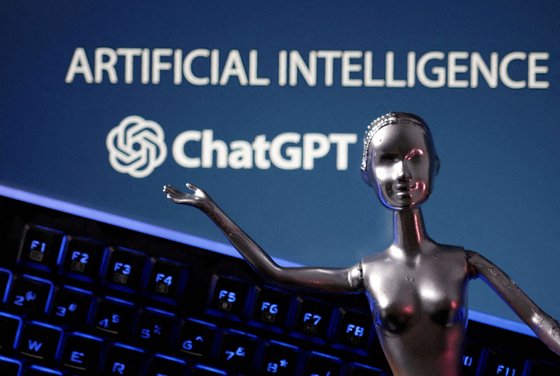
Nature, an international academic journal, has selected ChatGPT, a chatbot with 10 scientists and generative artificial intelligence (AI) among Nature’s 10, which selects people who have created a sensation in the global scientific community this year. It is the first time that Nature has selected a tool other than a person as its “Nature 10.” “Chat GPT has dominated the news this year and its influence is on science and society as a whole,” said Richard Monastusky, senior feature editor of Nature on the 14th. “Chat GPT is not a person, so it does not fit into Nature 10, but it is included in acknowledging that Generative AI has changed scientific development and progress in a profound way.” Dr. Kalpana Kalahasti, a female scientist from the Indian Space Research Organization (ISRO), was first selected as this year’s top scientist. Nature said that Dr. Kalahasti, as an engineer and manager of the Chandrayaan-3 project, succeeded in landing Chandrayaan-3 on the moon, making India the fourth country to land on the moon. Dr. Annie Kritzer, a female physicist at the National Ignition Facility (NIF), a nuclear fusion research facility in Lawrence Livermore National Laboratory, was chosen. The NIF research team succeeded in “ignition,” which produces more energy through a fusion reaction than the energy it puts into generating nuclear fusion, for the first time, and marked a significant milestone in nuclear fusion research. Dr. Katsuhiko Hayashi, a developmental biologist at the University of Osaka in Japan who succeeded in producing baby mice from the cells of two male mice, also made a Nature 10 list. Dr. Hayashi’s team made skin cells of male mice into induced pluripotent stem cells, then created an egg through genetic manipulation, and successfully obtained a baby between the two father mice biologically. Ilya Suitsukever, the chief scientist of OpenAI, was selected in Nature 10 along with evaluation that she played a key role in developing ChatGPT and large-scale language model (LLM) to support it. Two people who have been working hard to solve environmental problems were also included in Nature 10. Brazil’s Environment Minister Marina Silva has drawn attention for taking policy measures to reduce deforestation in the world’s largest rainforest, which has been rapidly increasing over the past few years, while Eleni Milibili,

the U.N.’s first global heat officer, has been praised for helping countries around the world prepare for the devastating effects of climate change. She also named three scientists who made important advances in biomedical science this year. Dr. Halidou Tinto, director of the Burkina Faso Nanoro Clinical Research Institute, led clinical trials of a highly anticipated vaccine that would bring about significant changes in reducing malaria infections and deaths, contributing greatly to the approval of malaria vaccines. Professor Thomas Fowles, a cancer researcher at St. Bartolomeo Hospital in London, England, drew attention after reporting the results of clinical trials that heralded breakthroughs in bladder and other cancer treatments. Professor Svetlana Moisov, a biochemist at Rockefeller University in the U.S., drew keen attention again as the filling hormone GLP-1 (glucagon-like peptide-1), which played a decisive role in her discovery for decades, led to the development of blockbuster obesity treatments. In Nature 10, James Hamlin, a physicist at the University of Florida in the U.S., who discovered the problems of the room temperature superconducting paper, which was published earlier this year and became a hot topic in the world, was also selected. Professor Hamlin questioned Nature after discovering the problems of a room temperature superconductor paper called “nitrogen-infused ruthenium hydride (NDLH),” which was published in Nature by a team led by Professor Langa Díaz at the University of Rochester in the U.S. in March, and Nature decided to withdraw the paper last month. “The stories of the 10 people selected for Nature 10 and the ChatGPT, an AI tool, are capturing the most important developments in the scientific community in 2023,” Monastersky, a senior editor, said. “Nature has selected people who played an important role in the scientific community this year, and Nature 10 is not an award or ranking, but a list of people who have played an important role in the scientific
EJ SONG
US ASIA JOURNAL



